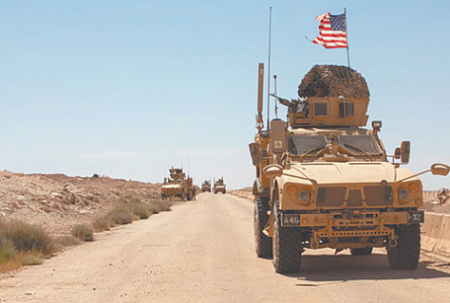
The Pentagon has paused its planned reduction of military forces in Syria, citing concerns over the stability of the new transitional government in Damascus. According to military sources, Washington is wary of the fragility of President Ahmed al-Sharaa’s administration, which came to power in December 2024. A senior U.S. defense official stated that before proceeding with any withdrawal, the U.S. will first observe how the new government and its security apparatus take shape, acknowledging a delicate political situation that is recognized even within the Syrian government itself.
The decision to freeze the drawdown reverses a process that began this spring. Initial reports in April indicated that the Pentagon was planning to reduce its contingent of just under 2,000 personnel to approximately 1,400, which would involve closing three of its eight operational bases in northeastern Syria. Some recommendations reportedly went further, suggesting a minimal presence of only 500 American troops could be maintained by consolidating bases.
Washington’s apprehension is supported by a June assessment from the Defense Intelligence Agency, which warned that the Damascus government exercises only “nominal” control over much of its territory and that its security forces are severely depleted. While the new government enjoys support from many former opposition groups, pockets of resistance remain, and its authority is weakest in the northeast, which is largely controlled by the U.S.-backed, Kurdish-led Syrian Democratic Forces (SDF).
Internal tensions further complicate the security landscape. Recently, SDF units engaged in artillery and drone strikes against Syrian army positions near the critical Tishrin Dam on the Euphrates River, claiming the attack was retaliatory. Despite a March agreement to integrate SDF military and civil structures into the central government, the pact remains largely unimplemented. The SDF has reportedly escalated its demands, insisting that its commander, Mazloum Abdi, or a close associate be appointed as Syria’s Minister of Defense or Chief of the General Staff, a demand to which Damascus has not yet officially responded.
Faced with these internal and external pressures, the Syrian government is actively seeking security assistance from other foreign powers. In a clear signal of this outreach, Syria’s Chief of the General Staff, Ali al-Anaasan, led a military delegation to Moscow on October 2 for talks with Russian Deputy Defense Minister Yunus-Bek Yevkurov. The discussions were aimed at enhancing security coordination between the two countries, highlighting Damascus’s search for reliable partners to bolster its precarious hold on power.
